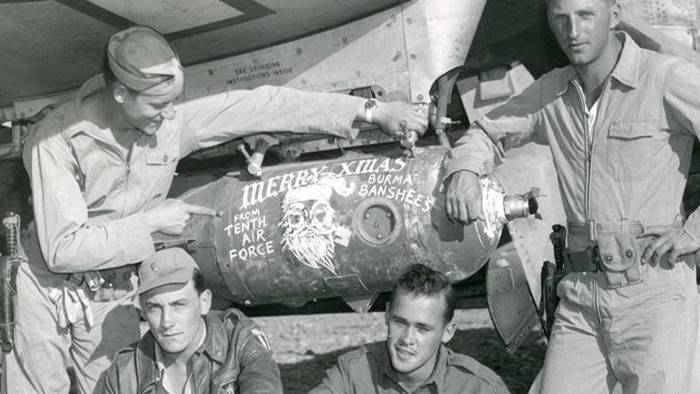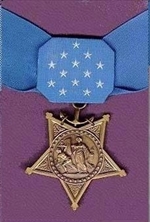
Medal of Honor Citation: Richard Nott Antrim
Rank and organization: Commander, U.S. Navy.
Place and date: Makassar, Celebes, Netherlands East Indies, April 1942.
Entered service at: Indiana.
Born: 17 December 1907, Peru, Ind.
Citation: For conspicuous gallantry and intrepidity at the risk of his life above and beyond the call of duty while interned as a prisoner of war of the enemy Japanese in the city of Makassar, Celebes, Netherlands East Indies, in April 1942. Acting instantly on behalf of a naval officer who was subjected to a vicious clubbing by a frenzied Japanese guard venting his insane wrath upon the helpless prisoner, Comdr. (then Lt.) Antrim boldly intervened, attempting to quiet the guard and finally persuading him to discuss the charges against the officer. With the entire Japanese force assembled and making extraordinary preparations for the threatened beating, and with the tension heightened by 2,700 Allied prisoners rapidly closing in, Comdr. Antrim courageously appealed to the fanatic enemy, risking his own life in a desperate effort to mitigate the punishment. When the other had been beaten unconscious by 15 blows of a hawser and was repeatedly kicked by 3 soldiers to a point beyond which he could not survive, Comdr. Antrim gallantly stepped forward and indicated to the perplexed guards that he would take the remainder of the punishment, throwing the Japanese completely off balance in their amazement and eliciting a roar of acclaim from the suddenly inspired Allied prisoners. By his fearless leadership and valiant concern for the welfare of another, he not only saved the life of a fellow officer and stunned the Japanese into sparing his own life but also brought about a new respect for American officers and men and a great improvement in camp living conditions. His heroic conduct throughout reflects the highest credit upon Comdr. Antrim and the U.S. Naval Service.

